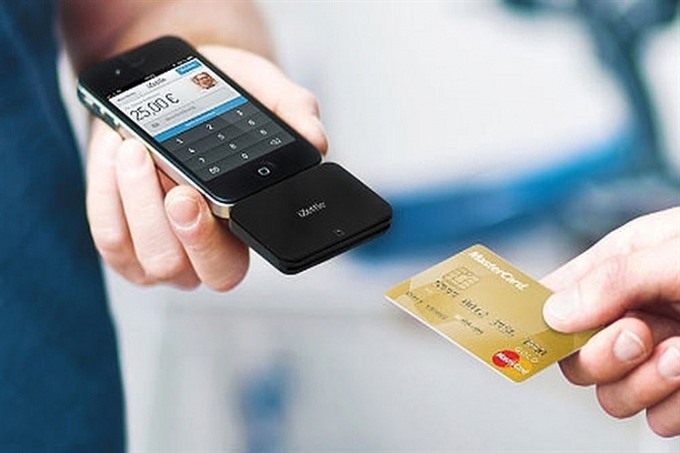[ad_1]

|
| Việt Nam is entering the Fourth Industrial Revolution with the participation of all sectors, including the banking system; however, non-cash payment has seen development stall as the country’s population has not yet embraced its benefits.— Photo vietnambiz.vn |
HÀ NỘI — Việt Nam is entering the Fourth Industrial Revolution with the participation of all sectors, including the banking system; however, non-cash payment has seen development stall as the country’s population has not yet embraced its benefits.
Representatives from various sectors and agencies discussed how to promote cashless payment systems in rural areas at a Friday workshop in Hà Nội.
At the workshop, Deputy Chairman of Việt Nam Farmers’ Association Phạm Tiến Nam said these cashless systems are a worldwide trend that some Vietnamese people have started to embrace as an alternative to normal cash transactions.
“Non-cash payments will be indispensable as the country’s technology and economy develop,” said Nam. “The whole world is moving toward a cashless society.”
Nam cautioned that the development of systems in Việt Nam, especially in rural areas, was still limited.
“About 40 per cent of Vietnamese people already have bank accounts, but 90 per cent of population still spends cash daily,” he said. “Nearly 99 per cent of people use cash to pay for commodities valued below VNĐ100,000, and up to 85 per cent of ATM transactions are cash withdrawals.”
Cash is also fading away in tax payments. Electronic taxation was implemented for the first time in 2014, and 95 per cent of businesses have now registered to pay taxes electronically via commercial banks. The portion of tax revenue received electronically has risen to 70 per cent, but there are still businesses that prefer to make direct payments.
The utilities sector is also moving away from traditional payment methods. A report by Electricity of Viet Nam showed that there are 4.5 million customers paying via banks and intermediaries, accounting for 18.47 per cent of users nationwide.
There may still be so many holdouts because people are afraid of change.
According to Nam, domestic consumers and rural farmers often use cash because it is fast, convenient and accepted universally. It is also easy to manage a cash budget without worrying about additional costs. Cash payments are secure and private because they leave no digital trace and reveal no personal information.
Nam said that while Vietnamese consumers, especially those in rural areas, had been encouraged to use cashless payments, the system’s infrastructure remained weak.
Unofficial statistics report that, excluding Agribank, commercial banks have only two or three transaction points in each rural district. Meanwhile, urban districts have nearly 40 transaction points on average.
Nghiêm Thanh Sơn, Deputy Director of the Payment Department of the State Bank of Việt Nam (SBV), said more than 60 per cent of the population in rural areas uses smart phones, which could signify favourable conditions for non-cash payment systems to develop.
“The challenge now is to expand the network of card acceptance points to help people make small transactions in rural and remote areas,” Sơn said. “In addition, the Central Bank should allow non-bank organisations to provide collection and payment services to ensure users have enough options.”
Sơn said that among the tens of millions of successful daily transactions, a very small number of failed transactions had caused customers to doubt the efficacy of the whole system.
“No matter where the error comes from, whether it is the fault of the bank or the user, people will still be concerned,” he said. “The State governing body will always follow up on these problems. We will ensure we work to help people who have lost money in these cases.”
Nguyễn Việt Hải, head of Agribank’s Research and Service Development Department, suggested the State Bank and relevant agencies study mechanisms for charging costs like withdrawal fees at ATMs.
“There should be a policy to encourage people in rural areas to use modern telecommunications services such as mobile phones, 4G services, internet banking and modern cashless payment systems,” said Hải. — VNS
[ad_2]
Source link
